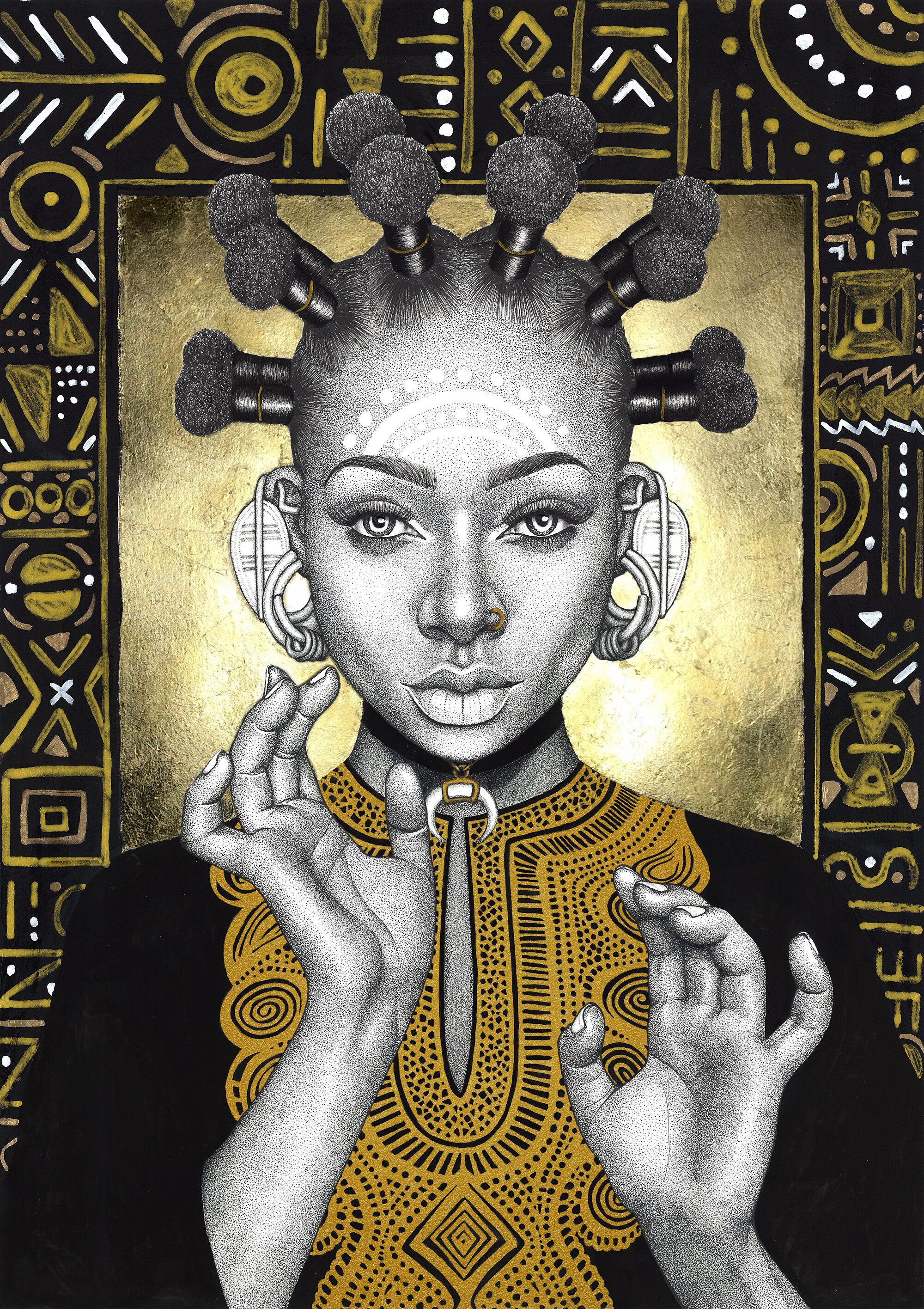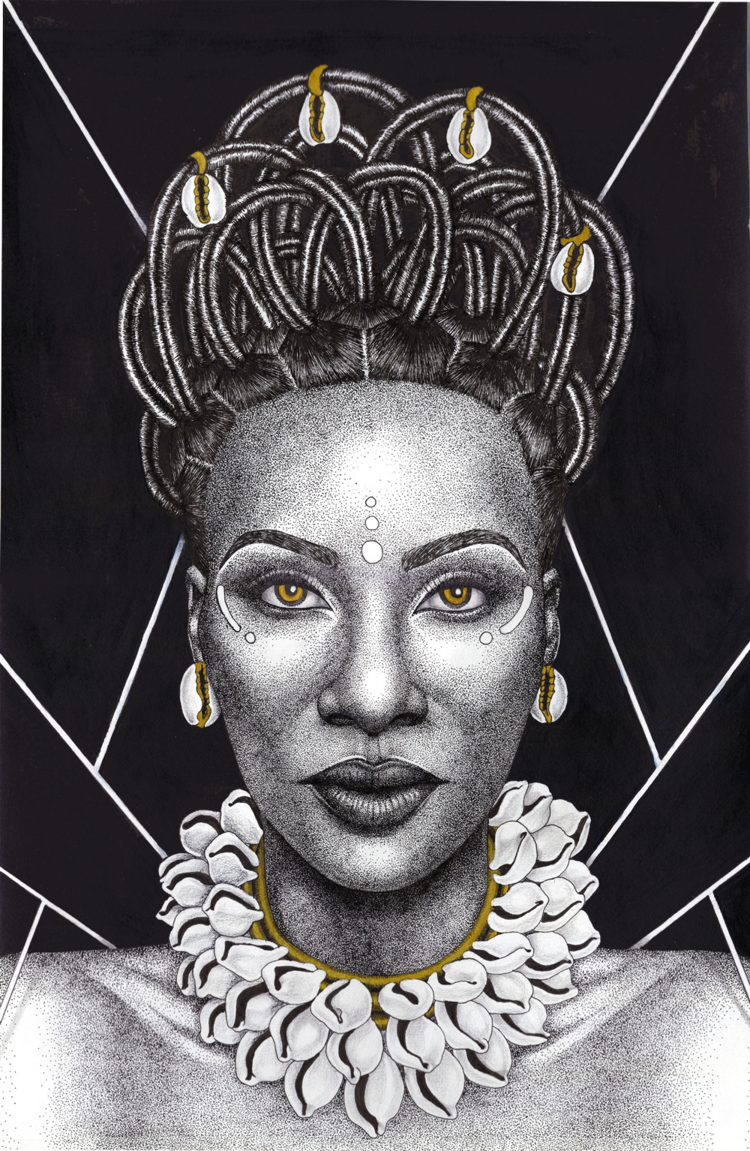General Taboos Around Pregnancy in Odinani
In Igbo cosmology, pregnancy is a sacred and pivotal period in a woman's life, where she is seen as a vessel carrying and bringing a new soul into the world. This process is imbued with spiritual significance, and as such, there are numerous taboos—known as nso—designed to protect both the mother and the unborn child. These taboos extend to various aspects of life, including diet, behavior, and interactions, and they reflect the deep-rooted beliefs and customs that govern traditional Igbo society.
Dietary Taboos
Diet plays a vital role in the health and well-being of a pregnant woman and her unborn child, according to Odinani. Specific foods are believed to influence not just the physical health of the baby but also its spiritual and moral characteristics. Here are some common dietary taboos observed during pregnancy:
Pounded Yam: Pregnant women are advised to avoid pounded yam as it is believed to cause the baby to grow excessively large. This, in turn, is thought to lead to difficult labor and delivery, posing risks to both the mother and the child.
Snails: Consuming snails during pregnancy is believed to predispose the newborn to excessive salivation and incessant vomiting. The slow-moving and slimy nature of snails is metaphorically linked to these conditions, suggesting a need for caution in the expectant mother's diet.
Nchi (Grasscutter): Certain types of meat, particularly grasscutter (Nchi), are associated with prolonged labor and difficult delivery. The belief is that the characteristics of the animal—such as its stubbornness—might be transferred to the birthing process, making it more challenging.
Pig Meat: Eating pig meat is discouraged during pregnancy, as it is believed to cause the baby to be born with spots or blemishes on the skin. The pig's perceived uncleanliness and association with filth are thought to influence the physical appearance of the newborn.
Local Pears: Consumption of local pears (ube) during pregnancy is believed to cause skin eruptions called "obo" in the newborn. These skin conditions are thought to be a direct result of the mother's diet, leading to the recommendation to avoid such foods.
Hot Peppery Dishes: Pregnant women are advised to avoid hot and spicy foods, as these are believed to increase the risk of miscarriage. The heat from these dishes is metaphorically linked to the potential "burning away" of the fetus, which can lead to its premature expulsion.
Behavioral Taboos
In addition to dietary restrictions, pregnant women are also expected to adhere to a set of behavioral taboos that are designed to protect the spiritual and physical well-being of both the mother and child. These taboos emphasize the importance of maintaining purity, avoiding negative influences, and making sure that the child is born healthy and well-formed.
Chastity: One of the most significant behavioral taboos during pregnancy is the emphasis on chastity. Adultery is considered a grave abomination, or nso ani, and is believed to attract painful and difficult labor, and in some cases, maternal death. The spiritual impurity resulting from adultery is thought to bring about severe consequences for the expectant mother.
Avoiding Masquerades and Ugly Objects: Pregnant women are advised to avoid looking at masquerades, which are seen as spiritual entities, as well as any ugly or unpleasant objects. The belief is that exposure to such sights could result in the birth of an ugly or malformed child, as the mother's experiences are thought to influence the physical appearance of the baby.
Avoiding Burials and Death Rites: Expectant mothers are traditionally discouraged from attending burials or participating in death rites. This taboo is based on the belief that the energy of death is harmful to both the mother and the unborn child, potentially leading to complications during pregnancy or affecting the child's health and vitality.
The Spiritual Significance of Taboos
The various taboos observed during pregnancy in Igbo culture are deeply rooted in the spiritual beliefs of Odinani. These taboos are not superstitions but are seen as necessary practices to ensure the safe passage of the unborn child into the world. Adhering to these taboos enables the expectant mother to align herself with the spiritual forces that govern life and death, and ensure that she remains in harmony with the natural order.
Recommendations for Expectant Mothers
For those who adhere to these traditional beliefs, it is important to approach pregnancy with reverence and mindfulness. Here are some recommendations for expectant mothers in line with Odinani:
Be Mindful of Diet: Avoid foods that are believed to negatively impact the pregnancy. Instead, focus on nourishing meals that are culturally and spiritually approved to support the health of both mother and child.
Seek Guidance from Elders: In many Igbo communities, elders and spiritual leaders play an important role in guiding expectant mothers. Seek their counsel and follow their recommendations based on your own cultural context to ensure a safe and successful pregnancy.
Engage in Positive Rituals: Participate in positive spiritual practices that align with Odinani, such as prayers, offerings, and rituals that invoke the protection and blessings of spiritual guides.
To Sum It Up
In Igbo cosmology, pregnancy is a sacred journey that requires careful adherence to spiritual and cultural taboos. These practices, which encompass dietary and behavioral restrictions, are designed to protect the mother and unborn child from harm and ensure a successful delivery. Respecting these taboos enables expectant mothers to align themselves with the spiritual forces that govern life, to ensure that they bring new life into the world in a way that honors tradition and maintains harmony with the cosmos.














